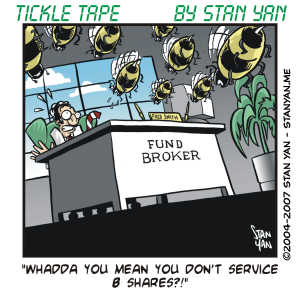Trading the markets can be a mix of excitement and stress. It’s exciting to put on trades. It’s a thrill. You feel energized and thrive on the action. But it’s also stressful. You’re constantly putting your ego and money on the line. If you are not careful, it can use up all your psychological energy. You end up worn out, and you’ll have difficulty facing the constant challenges the markets put before you. It’s vital for the long-term survival that you take time off. Don’t overwork. Take a break when you need to.
Many traders don’t like taking a few days off from trading for fear that they will miss a significant trading opportunity. They believe that unless they are ready to trade the markets every single day, they will miss a once in a lifetime trade, and regret it later. It’s hard to break away from the markets. For example, in “Reminiscences of a Stock Operator,” Jesse Livermore had trouble staying away from the markets. While on vacation far from home, he couldn’t resist going to the local brokerage to monitor the markets.
And once he was there, the markets seduced him into making a few trades. He just couldn’t tear himself away from the action. To some, the excitement and exhilaration of the markets can be addictive. It becomes their raison d’etre. But continuous trading can also allow stressful emotions to accumulate and get pent up. With every winning trade comes a few losing trades, and the constant emotional ups and downs can take a psychological toll. It’s useful to let off steam, and allow yourself to relax.
Taking days off as a trader can pose problems, however. What do you do about ongoing trades? Do you close out all your positions? If you’re trading your own account, it’s possible to close out your positions, but if you’re a professional hedge fund manager, closing out positions can pose additional problems, such as substantial losses. It may be necessary to ask a trading partner to trade your account while you are on vacation. If you chose this option, however, you must be willing to accept the decisions of your trading partner. That can be hard for some people to do. If you don’t close out positions, though, it would be difficult to fully relax. In the back of your mind, you’ll wonder how your positions are doing. Ideally, while on vacation, it would be nice to close out your positions and feel that you have left your trading worries at home.
Although it may be psychologically difficult to take a vacation, taking one is essential for maintaining psychological health. It’s possible if you just make a plan for taking one. If it means finding a trading partner to take over, planning trades so that they can be closed out before your planned vacation, or just closing out your positions and living with the consequences, it is essential that you take time off. By taking time off, you can relax, and allow yourself to feel refreshed, so you can take on the markets with renewed vigour.

